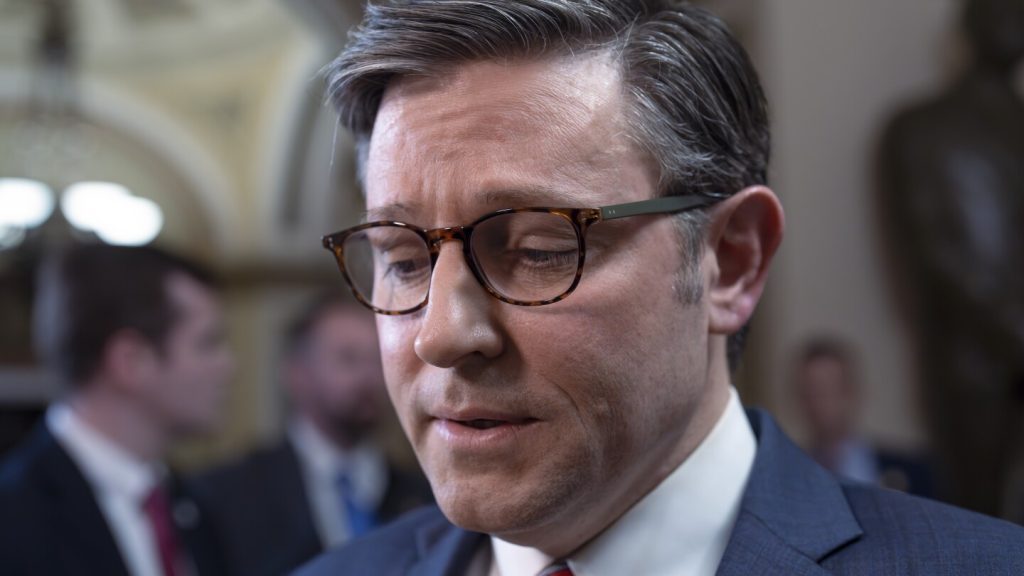House Speaker Mike Johnson faced a critical decision that could determine the course of history and his own career. The decision involved approving $95 billion in war-time aid for Ukraine, Israel, and other U.S. allies, despite opposition from many in his own Republican majority. Johnson, a conservative Christian, grappled with whether to lead the House in providing aid or risk losing his job by doing nothing and leaving Ukraine to fend for itself against the Russian invasion. After seeking guidance and praying with colleagues, Johnson decided he wanted to be on the right side of history, according to Rep. Michael McCaul.
Johnson, who is relatively new to his role as House Speaker, has been praised for his leadership and willingness to make difficult decisions. Former Republican House Speaker Newt Gingrich commended Johnson for not succumbing to pressure from hard-right Republicans and instead relying on his beliefs as a Reagan-era Republican to guide his decision-making process. Johnson’s leadership is crucial during a pivotal moment for the U.S., its allies, and his own career, as he navigates the complex dynamics within the deeply polarized House of Representatives.
Since taking office, Johnson has faced challenges and criticism from within his own party, particularly from those aligned with former President Donald Trump. Despite pressure to align with the populist far-right flank, Johnson has shown determination to move forward with providing aid to Ukraine and other allies, even if it means relying on Democratic support. His efforts have garnered public support from President Biden, who endorsed Johnson’s foreign aid plan. However, some Republicans continue to criticize Johnson, with calls for him to resign or face removal from office.
Throughout his tenure as Speaker, Johnson has focused on convening closed-door meetings with lawmakers to discuss critical issues and make decisions. While some view these meetings as frustrating, others appreciate Johnson’s willingness to listen to different perspectives. Despite facing threats to his own job, Johnson remains steadfast in his commitment to doing what he believes is right, even if it means risking his position as Speaker. Johnson emphasized the importance of standing by his decision, citing the potential consequences for American families and the world.
In a dramatic turn of events, Johnson faced a decisive moment as over 300 lawmakers, including more Democrats than Republicans, voted to push the aid package towards passage. While some Republicans praised Johnson for his courage, Democrats expressed disappointment in the delay in taking action. Despite differing views on Johnson’s leadership, there is a growing sense of support for his position within the House, as lawmakers reflect on the broader implications of the aid package. As Johnson grapples with the challenges of his role as Speaker, the future of U.S. foreign policy and his own political career remain uncertain amid increasing polarization and dissent within the Republican Party.


